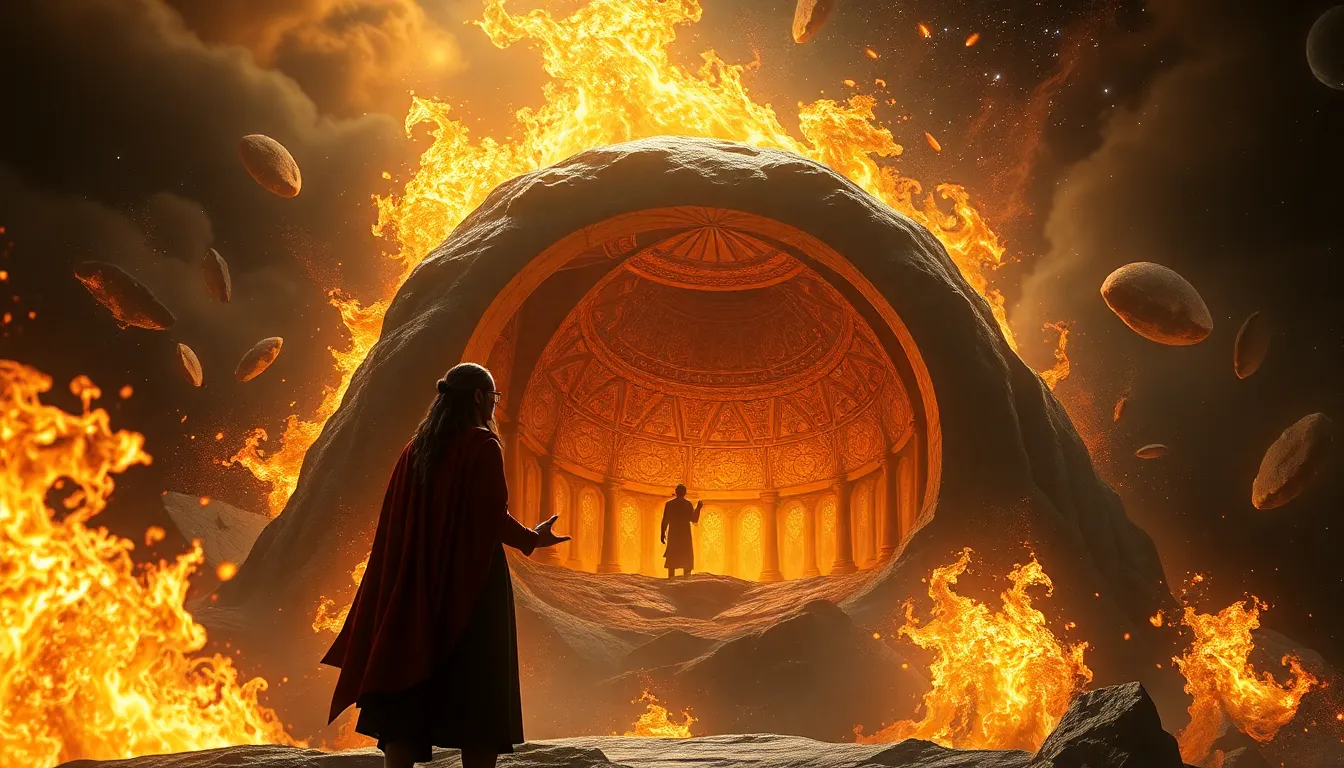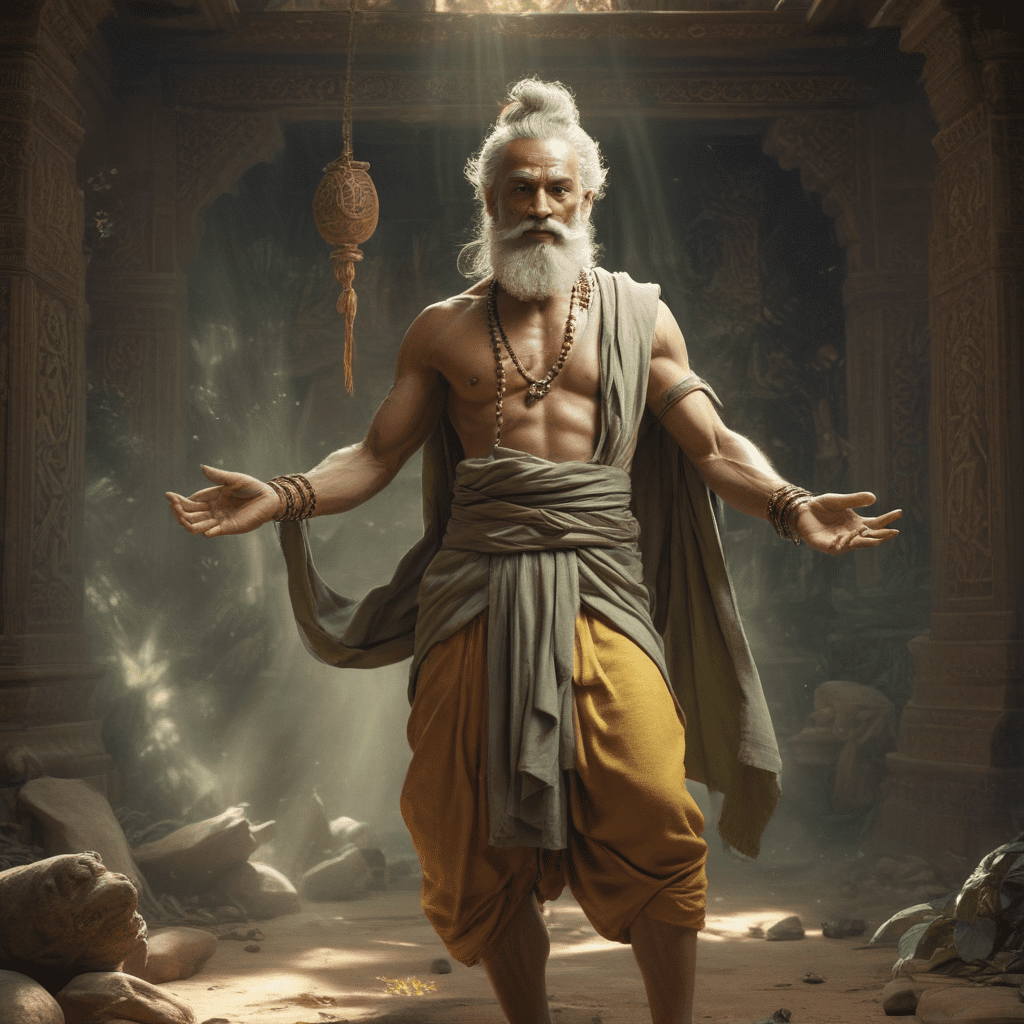The Mythical Journey: How Creation Stories Reflect Our Lives
1. Introduction
Creation stories, often referred to as myths, are narratives that explain the origins of the universe, humanity, and the various aspects of life. These stories hold a significant place in various cultures around the world, serving as a means to convey values, beliefs, and the collective identity of communities.
The significance of creation stories transcends mere entertainment; they provide insights into the human experience, offering frameworks for understanding our existence and the world around us. This article aims to explore the profound connections between creation myths and personal experiences, demonstrating how these ancient narratives remain relevant in the lives of individuals today.
2. The Nature of Myths
Myths are traditional stories that often involve supernatural events or beings and are intended to explain natural or social phenomena. They can serve various purposes, including:
- Explaining the unexplainable
- Providing moral guidance
- Preserving cultural identity
There are different types of myths, including:
- Creation Myths: Stories that explain how the world and humanity were formed.
- Hero’s Journey: Narratives following a hero who ventures into the unknown and returns transformed.
- Transformation Myths: Tales depicting significant changes in characters or societies.
Myths play a crucial role in shaping cultural identity, reflecting the values and beliefs of the societies from which they originate.
3. Common Themes in Creation Stories
Creation stories often share several common themes that resonate across different cultures:
- The Emergence of the Universe: Many myths describe the transition from chaos to order, illustrating how the cosmos was formed out of nothingness.
- The Role of Deities: Supernatural beings often play a central role in creation, embodying the forces of nature and human experience.
- The Creation of Humanity: These narratives frequently explore the purpose and meaning behind human existence, reflecting the struggles and aspirations of people.
4. Creation Stories Across Cultures
Notable creation myths include:
- Genesis: The Judeo-Christian account of creation, detailing the seven days of creation and the formation of humanity in God’s image.
- The Popol Vuh: A Maya text that describes the creation of the world, the gods’ attempts to create humanity, and the eventual success with maize.
- The Enuma Elish: A Babylonian creation myth that depicts the battle between gods and the establishment of order from chaos.
While these stories vary widely, a comparative analysis reveals shared themes such as the struggle between chaos and order and the divine purpose behind creation. Geography and environment also play a significant role in shaping these narratives, reflecting the societies’ interactions with their surroundings.
5. Personal Journeys Reflecting Mythical Narratives
Individuals often find that their life experiences mirror themes found in creation stories. For example:
- Challenges and Triumphs: Much like characters in myths, people face trials that lead to personal growth and transformation.
- The Search for Identity: Just as creation myths explore the formation of humanity, individuals seek to understand their own identities and purposes.
Case studies and personal anecdotes can illustrate this connection. For instance, someone overcoming adversity might resonate with the hero’s journey, finding strength in their struggles akin to mythological heroes.
6. The Psychological Perspective: Archetypes in Myths
Carl Jung’s concept of archetypes provides a psychological framework for understanding how myths reflect universal human experiences. Creation myths often embody archetypes such as:
- The Hero: A central figure who embarks on a journey, faces challenges, and emerges transformed.
- The Creator: A deity or force that brings order to chaos and shapes existence.
- The Mother: Symbolizing fertility and nurturing, often associated with the Earth or nature.
These archetypes resonate with personal narratives, highlighting the significance of collective unconscious themes in shaping individual experiences.
7. Myth and Meaning: Finding Purpose in Life
Creation stories provide frameworks for understanding existence and the human experience. They help individuals navigate life’s challenges and find meaning through storytelling. By engaging with these narratives, people can:
- Reflect on their struggles and triumphs
- Find solace in shared human experiences
- Explore their values and beliefs
Ultimately, the search for meaning through mythological lenses can lead to personal revelations and growth.
8. The Influence of Creation Myths on Modern Society
Ancient creation stories continue to shape contemporary beliefs and values. Their influence is evident in:
- Literature and Film: Many modern narratives draw on mythological themes, reflecting timeless human experiences.
- Art: Artists often incorporate mythological elements to explore identity and existence.
- Values: Societal norms and ethics can be traced back to the moral lessons embedded in creation myths.
The relevance of these narratives in today’s world underscores their enduring power to inspire and guide individuals.
9. Revisiting Creation Stories: An Evolving Narrative
Creation myths are not static; they evolve in response to societal changes. New interpretations and retellings reflect contemporary values and beliefs. This evolution emphasizes:
- Inclusivity: Modern adaptations often seek to include diverse voices and perspectives.
- Diversity: Acknowledging multiple creation stories enriches our understanding of human experience.
As society progresses, the adaptation of these myths ensures their relevance and resonance with new generations.
10. Conclusion
In conclusion, creation stories and personal journeys are intricately interconnected. The enduring power of myths lies in their ability to shape human experience, offering insights into our struggles, triumphs, and search for meaning. As readers, we are invited to reflect on our own narratives through the lens of mythological themes, embracing the universal truths that bind us all.


